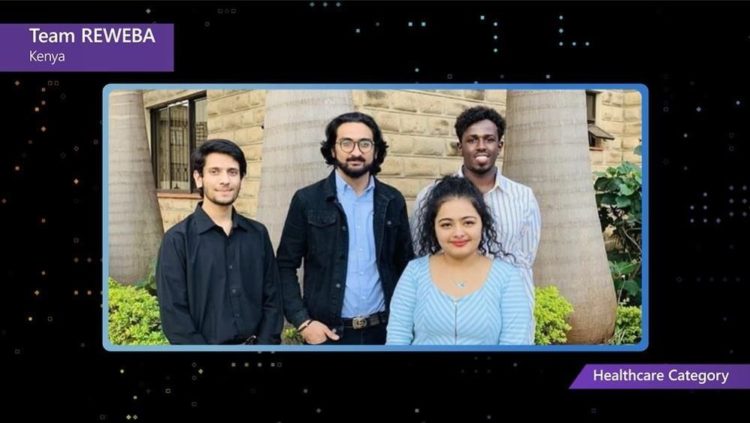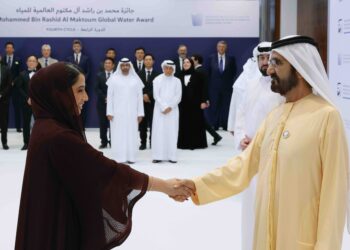The 19th annual Imagine Cup, which brought together thousands of students from 163 nations to explore technological solutions that would positively influence their communities, has recognized four students (Team REWEBA) from USIU-Africa as winners.
The four students (Team REWEBA), Khushi Gupta, Jeet Gohil, Dharmik Karania, and Abdihamid Ali, received the grand prize for their IoT-based infant monitoring solution, which evaluates newborn parameters remotely during post-natal screening and acts as an early warning intervention system.
The team received USD75,000 in prize money, as well as a mentoring session with Microsoft CEO Satya Nadella and a USD50,000 Microsoft Azure grant.
The concept behind Team REWEBA’s project, which was submitted under the Healthcare category, was explained, emphasizing that the project was created to address the problem of healthcare access in marginalized communities.
“Before putting together the project, the four of us interned at a local hospital, where we witnessed firsthand the difficulties experienced by moms, particularly in terms of newborn baby healthcare. The lack of healthcare access, combined by the pandemic’s impact, resulted to a high mortality rate, according to the REWEBA team.
Remote Well Baby (REWEBA) is an early warning device that digitally monitors and delivers data on a baby’s growth and health indicators to doctors for prompt action. It integrates Machine Learning, IoT, Analytics, and other technologies to give cutting-edge baby screening capabilities that mirror the procedure of post-natal screening in a hospital.
One of the team members, Khushi Gupta, stated that the development of the solution was motivated by the need for equal access to healthcare and the prevention of infant mortality.
“Infant mortality is highest in Sub-Saharan Africa, exposing a shortfall in healthcare services. REWEBA is the unique remote healthcare system that allows parents to watch their children’s growth from the comfort of their own homes while simultaneously offering doctors direct access to intervene quickly,” Gupta said.
The team intends to expand and scale their technology to incorporate more baby screening variables and a postnatal screening device for women, as well as develop a start-up to support and improve healthcare access across the country in the future. The team also intends to expand the study across the African continent and India, which they say have some of the highest infant death rates in the world.
The Imagine Cup aims to challenge students to create something meaningful to them while also providing them with opportunities to improve their talents and gain access to tools, resources, learning materials, and mentors to assist them in bringing their ideas to life.
The competition registration for 2022 is now open.
Visit the website to apply or for more information.











